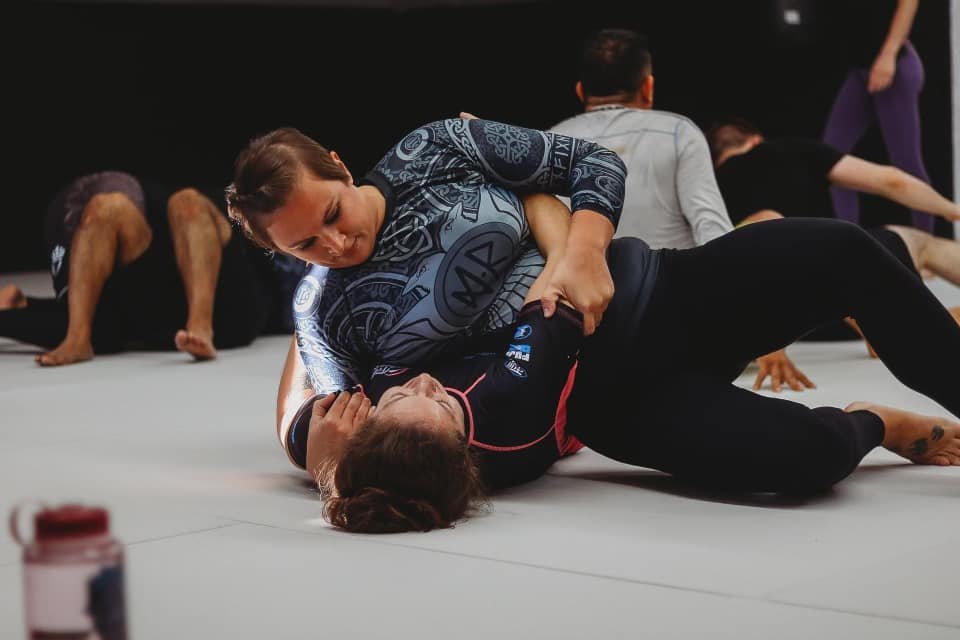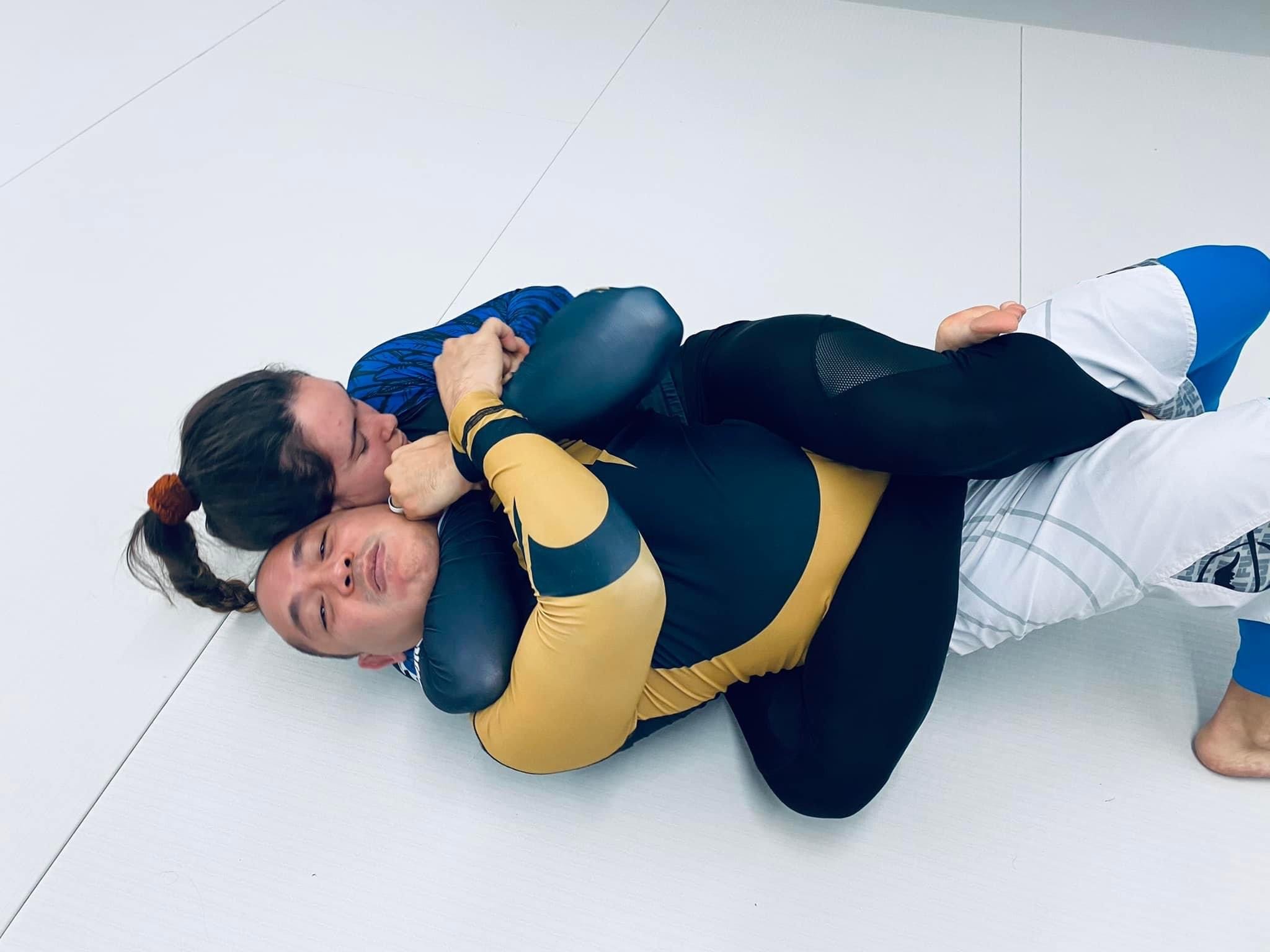The Benefits of Brazilian Jiu-Jitsu: More Than Just a Martial Art
More Than Just a Martial Art
Brazilian Jiu-Jitsu (BJJ) is a martial art that has gained popularity all over the world. It's a grappling-based martial art that emphasizes technique and leverage over strength and size. While BJJ is known for its effectiveness in self-defense and competition, it offers many other benefits beyond martial arts. In this article, we'll explore some of the key benefits of Brazilian Jiu-Jitsu and how it can positively impact your life.
Physical Fitness
BJJ is a great way to improve your overall physical fitness. It's a full-body workout that requires strength, endurance, flexibility, and coordination. Jiu-Jitsu training can help you burn calories, build muscle, and improve your cardiovascular health. Additionally, training BJJ can help you improve your balance, agility, and reaction time, which can be beneficial in other areas of your life.
Self-Defense
BJJ is a highly effective martial art for self-defense. Unlike striking-based martial arts, BJJ is focused on ground fighting and grappling, which can be more effective in real-life self-defense situations. Brazilian Jiu-Jitsu emphasizes techniques that allow a smaller, weaker person to defend themselves against a larger, stronger opponent. Learning Jiu-Jitsu can give you the confidence and skills you need to protect yourself and your loved ones.
Mental Health
BJJ is not just a physical workout, it's also a mental workout. Training Jiu-Jitsu requires focus, discipline, and perseverance. It can be challenging, but also rewarding. BJJ training can help you develop mental toughness, resilience, and the ability to handle stress. Additionally, Brazilian Jiu-Jitsu can be a great way to relieve stress and improve your mood. It provides a sense of accomplishment and can be a great way to connect with others who share your passion for the sport.
Community
BJJ is a community-based sport. When you train Jiu-Jitsu, you become part of a community of people who share your passion for the sport. Brazilian Jiu-Jitsu schools are typically very welcoming and supportive, and many people form lifelong friendships through training. The Brazilian Jiu-Jitsu community is diverse and inclusive, with people of all ages, genders, and backgrounds. Training BJJ can help you build social connections and feel a sense of belonging.
Life Skills
BJJ training can teach you valuable life skills that can be beneficial in other areas of your life. Martial Arts require discipline, focus, and perseverance, which can translate into other areas of your life, such as work, school, and relationships. BJJ can also help you develop problem-solving skills, adaptability, and the ability to think on your feet.
In conclusion, Brazilian Jiu-Jitsu is more than just a martial art. It offers a wide range of physical, mental, and social benefits that can positively impact your life. Whether you're looking to improve your fitness, learn self-defense, or connect with others, BJJ can be a great choice. So why not give it a try and see how it can benefit you?
The Evolution of Brazilian Jiu-Jitsu
The Evolution of BJJ
Brazilian Jiu-Jitsu, or BJJ, is a martial art that has gained immense popularity in recent years, but many people are unaware of its rich history and roots. In this article, we'll delve into the history of BJJ, from its origins in Japan to its development and spread throughout Brazil and the rest of the world.
BJJ is a style of martial arts that focuses on ground fighting and grappling techniques, with the goal of taking an opponent down to the ground and immobilizing them with joint locks and chokes. It is a highly technical and strategic sport that requires both physical strength and mental agility.
BJJ has its roots in traditional Japanese Jiu-Jitsu, which was brought to Brazil by Mitsuyo Maeda, a Japanese judoka who emigrated to Brazil in the early 20th century. Maeda, who was also known as Count Koma, traveled throughout Brazil and taught his martial arts techniques to Carlos Gracie, a young Brazilian who became his disciple.
The Gracie family, who were already known for their strength and athleticism, began to develop and refine the techniques they learned from Maeda, adapting them to their own unique style. Carlos Gracie, along with his brothers Helio and George, went on to establish the first BJJ academy in Brazil in 1925.
Over the years, the Gracie family continued to refine and develop their techniques, experimenting with new techniques and strategies to make BJJ more effective in real-world situations. They began to challenge other martial arts practitioners to matches, demonstrating the effectiveness of their techniques in real-world scenarios.
In the 1990s, BJJ gained international recognition when Royce Gracie, a member of the Gracie family, competed in the first Ultimate Fighting Championship (UFC) and emerged victorious. This victory showcased the effectiveness of BJJ in a real-world fight and helped to popularize the sport on a global scale.
Today, BJJ is practiced by millions of people worldwide, with competitions held in countries across the globe. It has become a staple of mixed martial arts (MMA) and is widely recognized as one of the most effective forms of self-defense.
In conclusion, the history of Brazilian Jiu-Jitsu is a rich and fascinating one, with roots in traditional Japanese Jiu-Jitsu and a legacy of innovation and refinement by the Gracie family. Today, BJJ continues to grow and evolve, with millions of practitioners worldwide and a rich legacy of history and tradition.
BJJ Competition: What to Expect
BJJ Competition: What to Expect
Competing in BJJ tournaments can be a highly rewarding experience, but it can also be incredibly nerve-wracking, especially for beginners. Whether you are new to the sport or a seasoned competitor, there are a few key things to keep in mind when preparing for a BJJ competition.
First and foremost, it's important to have a solid training plan in place. This means setting specific goals for your training, such as improving your technique, increasing your cardio endurance, or building strength and conditioning. You should also have a strategy for how you will approach your matches, including what positions and techniques you plan to use and how you will respond to different scenarios.
Another important aspect of preparing for a BJJ competition is managing your nerves and anxiety. Many competitors struggle with performance anxiety and fear of failure, which can negatively impact their performance. To manage these feelings, it's important to develop a mental game plan that includes visualization exercises, positive self-talk, and relaxation techniques.
On the day of the competition, it's important to arrive early and be well-prepared. This means having all of your gear and equipment packed and ready to go, including your uniform, mouthguard, and any other required gear. You should also make sure to fuel your body with the right nutrients and stay hydrated throughout the day.
During your matches, it's important to stay focused and present in the moment. This means avoiding distractions and staying focused on your game plan, while also being aware of your opponent's movements and reactions. You should also be prepared to adapt to different scenarios and adjust your strategy as needed.
Finally, it's important to have realistic expectations for your performance and to be kind to yourself, win or lose. BJJ competitions can be unpredictable, and even the most experienced competitors can have off days. Remember that the most important thing is to have fun and learn from your experiences, whether you win or lose. With the right preparation and mindset, competing in BJJ tournaments can be an incredibly rewarding and fulfilling experience.



